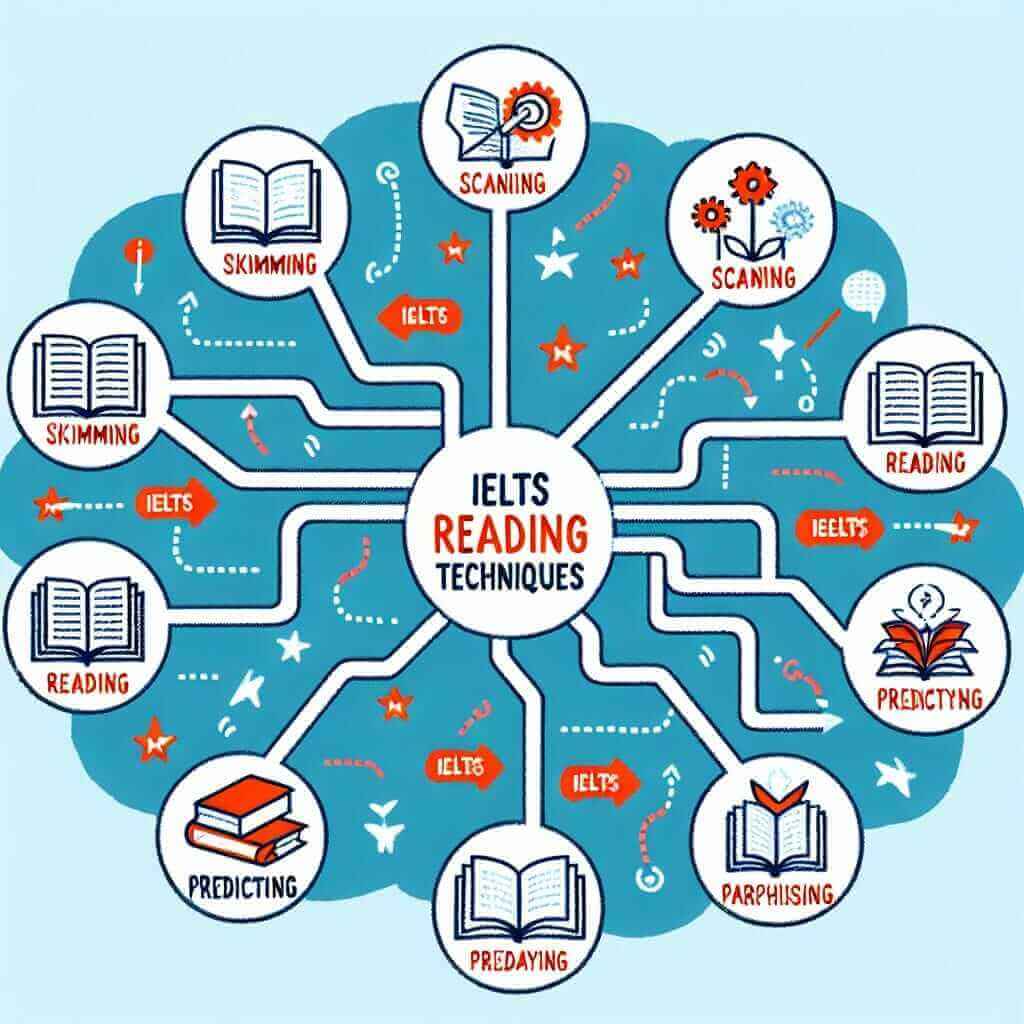The IELTS Reading section is often considered one of the most challenging parts of the IELTS test. However, with the right techniques and strategies, you can significantly improve your performance and increase your score. This article aims to explore various IELTS reading techniques, explain their importance, and provide practical examples for better understanding. By the end of this guide, you will have a comprehensive understanding of how to tackle the IELTS Reading section effectively.
Understanding IELTS Reading Techniques
Skimming
Skimming is reading rapidly to get a general overview of the material. This technique is especially useful for identifying the main ideas in a text.
Example:
When skimming a passage about climate change, focus on headings, subheadings, and the first and last sentences of paragraphs to understand the overall argument and structure.
Scanning
Scanning involves looking for specific information or keywords in the text without reading it word for word. This technique is particularly useful for answering detail-oriented questions.
Example:
If a question asks for a specific year or statistic about climate change, you would scan the text for numbers or words like “year” and “percentage” to quickly locate the answer.
Detailed Reading
Detailed reading is about carefully reading and understanding the specific details and meanings within a text. This is essential for answering questions that require deeper comprehension and analysis.
Example:
For a question that asks you to explain the causes and effects of a particular phenomenon, you would carefully read and dissect the relevant paragraphs.
Predicting
Predicting involves anticipating the types of information that might be found in a passage based on the title, headings, or specific questions. This helps focus your reading and makes the task more efficient.
Example:
If a passage is titled “The Impact of Deforestation,” you can predict that the text will likely cover aspects of environmental damage, species extinction, and climate change, which helps you know what to look for.
Paraphrasing
Paraphrasing is rephrasing sentences or ideas in your own words. This skill is crucial for understanding the passage’s main points and for Speaking and Writing tests.
Example:
If the text says, “Deforestation results in the loss of native species,” you could paraphrase it to, “Cutting down forests causes native species to disappear.”

Examples of Applying Techniques to IELTS Reading Tasks
Matching Headings
Example:
A passage with multiple paragraphs requires you to match each paragraph with appropriate headings. Using skimming, read the first and last sentences of each paragraph to identify the main ideas and match them accurately.
True/False/Not Given
Example:
You need to determine whether a statement is true, false, or not given based on the text. Scanning the text for keywords related to the statement helps quickly locate relevant sections. Then, use detailed reading to confirm the answer.
Common Mistakes to Avoid
- Reading Everything in Detail Initially: This can be time-consuming. Instead, skim and scan first to identify necessary sections for detailed reading.
- Ignoring Question Keywords: Always pay attention to keywords in questions, as they guide your scanning and detailed reading.
- Wrong Time Management: Spend appropriate time on each question, and do not linger too long on difficult ones.
- Overlooking Instructions: Read instructions carefully to avoid mistakes, especially in tasks like True/False/Not Given where misinterpretation can lead to errors.
Practice Methods
Timed Practice
Set a timer to practice skimming, scanning, and detailed reading under exam conditions. Start with shorter articles and gradually move to longer passages to build endurance and speed.
Reading Variety
Read different types of texts, such as news articles, academic journals, and reports, to get accustomed to various writing styles and vocabularies.
Mock Tests
Take full-length IELTS reading tests to familiarize yourself with the test’s format and improve time management skills.
Vocabulary Building
Improve your vocabulary by learning new words daily and practicing their usage in sentences. This aids in better comprehension and faster reading.
Conclusion
Mastering IELTS reading techniques such as skimming, scanning, detailed reading, predicting, and paraphrasing can significantly improve your performance in the IELTS Reading section. Practice regularly, avoid common mistakes, and employ these strategies to maximize your score. If you have any questions or need further guidance, feel free to leave a comment or explore our other resources on IELTS.NET. Good luck with your IELTS preparation!